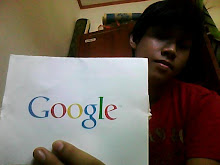Scientists are breeding more GM mice. Photograph: Natacha Pisarenko/AP
More than 3.7m scientific procedures were carried out using animals in 2010, an increase of around 100,000 on the previous year, according to data released by the Home Office. The rise is largely due to the production of more genetically modified mice and greater use of fish in basic biological and medical research.
Excluding the 1.6m procedures involving the breeding of GM animals – mostly mice – the 2010 total was up by 1% from 2009. The number of procedures is not equivalent to the number of animals used – one animal might undergo several procedures, and the act of breeding a genetically modified animal counts as a procedure in itself.
"If we exclude genetically manipulated breeding, there's an increase of less than 1% in the total numbers," said Judy McArthur Clark, chief inspector at the Animals Scientific Procedures Inspectorate of the Home Office. "That's largely due to the increase in the use of fish. Fish numbers went up by 23%, about 93,000 animals. That's more than the 1% increase, which means there's an accompanying decrease in other species."
Professor Dominic Wells, of the neuromuscular disease group at the Royal Veterinary College, said one of the reasons that scientists are breeding more GM mice is because they have refined their procedures. "Instead of creating animals that are adversely affected by the genetic modifications, we will very often keep two lines of mice, neither of which show an adverse phenotype until they are crossed. You can therefore generate precisely the number that you need in order to conduct that experiment. By breeding two lines we increase the number of animals used but we decrease the overall severity of what we're doing."
Primates, dog, cats and horses get special protection under the law and the total number of procedures on these groups was 19,773, around 0.5% of the total. Among the non-human primates, there was a 10% increase in procedures since 2009, though the number of actual animals used has dropped, according to McArthur Clark.
"The main change in the number of procedures is accounted for by new-world primates, such as marmosets, and the main reason for the increase is that it's a very fluctuating figure. The baseline numbers are quite small – one extra experiment or study in the year can actually have quite an impact on the numbers. Mainly these animals are used for collections of blood and tissue that are then used in pharmaceutical R&D. The number of old-world primates, macaques, the numbers have come down there, minus 2% on the numbers for 2009."
Procedures using dogs dropped by 2% – most of these were purpose-bred beagles mostly used in pharma development and safety evaluation - while the procedures on cats dropped by 32%.
There was also a fall of 11% in the number of animals used in toxicological tests, as a greater proportion of tests can now be used to satisfy more than one regulatory requirement.
Professor Roger Morris, head of the school of biomedical sciences at Kings College London, said 90% of his work was done with individual molecules and cells in culture. "But real diseases are diseases of the whole body, and can only be studied in the whole body. To take the example of Parkinson's – a disease that is very common and devastating. Part of this disease is a dopamine deficiency in the neurons, but the underlying cause is a complex set of interactive problems, that probably involves an inflammatory or autoimmune component. Thus we need to understand the interaction between two very complex bodily systems – the brain, and the immune system, to understand the defects causing this multi–tissue, multi–step disease. We can't study that in tissue culture of individual cells."
Barney Reed, senior scientist at the RSPCA, described the rise in procedures as "astonishing", pointing out that they equated to a 37% increase in animal use over the past decade. He also raised concerns over the implementation of a new EU directive on animal research into UK law that would legally allow the UK to drop its standards in many areas of inspection and practice in the use of animals. "A watered-down law could mean laboratory animals in the UK being allowed to suffer 'long-lasting, unalleviated, severe pain, suffering or distress', it could allow some animals such as dogs to be kept in even smaller housing, and some UK laboratories may not be visited by Home Office officials for years at a time – this is simply unacceptable," he said.
Martin Walsh, head of the Home Office's animals scientific procedure division, said he welcomed the EU directive because it would raise standards across the continent to the UK level. "We're ahead of the game in lots of areas. It's not going to reduce the protection of animals in the UK."
He added that the Home Office was also looking at ways to meet a commitment in the government's coalition agreement, which pledged to reduce the use of animals in scientific research and end the testing of household products on animals. Officials hope to publish a consultation on their ideas before the summer recess of parliament, said Walsh.
Source :
http://www.guardian.co.uk





















